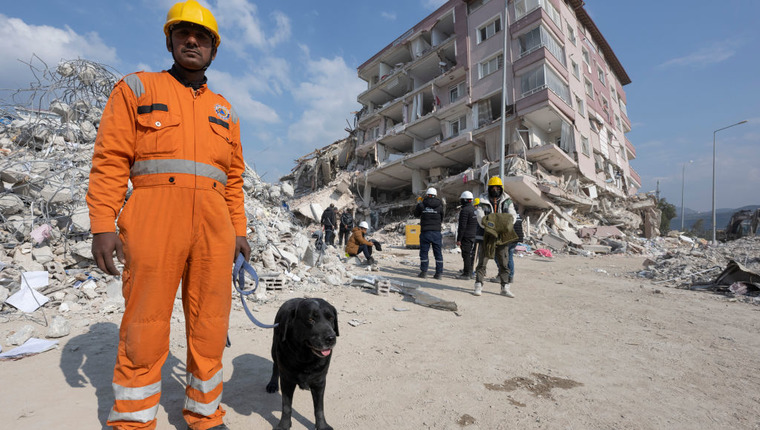
Following the recent earthquake in Turkey, the BBC reported that Mexico is sending its famous search and rescue dogs to help with disaster relief.
16 Dogs Making the Trip
According to the article, “a plane with 16 dogs on board took off from Mexico City” early on Tuesday. In 2017, Frida the Golden Lab gained international fame during the earthquake that hit Central America that same year. Significantly, a photo of Frida wearing safety goggles and boots while on the job won hearts globally, turning the dog into a celebrity.
Since then, Frida was retired with honors, and passed away just last year. However, one of Frida’s work colleagues was on the plane heading to Turkey last week. Ecko, a Belgian Malinois, was at the Mexico City airport with his Navy handler. However, it’s not just military dogs lending a paw in this dire moment. Apparently, a volunteer group called Los Topos de Tlatelolco (The Moles of Tlatelolco) will be joining them. After hearing about the disaster in Turkey, the group—composed of highly-trained volunteers—let Mexico’s Foreign Minister Marcelo Ebrard know that they were willing to help.
A Large-scale Search and Rescue Effort To Meet an Unprecedented Disaster
So far, the magnitude 7.8 earthquake has claimed over 25,000 lives in both Turkey and Syria. Aerial photos show huge fissures spreading for miles across the landscape. Unfortunately, rescue operations have been complicated by the ongoing civil war within Syria. Specifically, getting disaster relief and supplies to the country’s rebel-held northwestern territories has been difficult.
Although Syrian President Bashar al-Assad criticized western countries for their response, saying they “have no regard for the human condition”, the fact is there’s help on the way. Alongside Mexico, groups from the United States, Croatia, the Czech Republic, Germany, Greece, Libya, Poland, Switzerland, and the UK have deployed rescue dogs. Officials say time is of the essence, and their main mission is saving lives. Hopefully, their speedy deployment will “result in rescues more than recoveries”.





